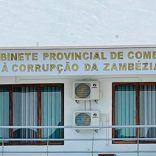Mozambique: North faces 'deepening' humanitarian crisis
Mozambique: Decline in malaria recorded in Niassa – AIM report

FILE: For illustration puroses only. [File photo: Unicef Mozambique]
The Niassa Provincial Directorate of Health, in northern Mozambique, has claimed a slight reduction in the number of cases of malaria diagnosed in the province, compared with last year.
According to the provincial chief doctor, Ramos Mboane, giving a balance of the third quarter of the year to reporters on Wednesday, the number of malaria cases in the first eight months of 2019 was 505,673. This compares with 514,571 in the same period of 2018, which is a decline of 1.7 per cent. The number of confirmed deaths from malaria fell from 134 to 113, a decline of 15.6 per cent.
The major public health challenges in Niassa remain malaria, tuberculosis and HIV/AIDS, said Mboane.
“In Niassa, we regard the situation of the major endemic diseases with great concern”, he said. “We have undertaken actions aimed at controlling these diseases, and ensuring a desirable state of public health”.
Mboane said the health services are under greatest pressure in the provincial capital, Lichinga, and in Cuamba and Mecanhelas districts. These are the most densely populated parts of the province, and where the largest number of malaria-related complications are reported.
The interventions under way, he said, include teaching the public about the correct use of mosquito nets. Nets are distributed to pregnant women free of charge during ante-natal consultations, because pregnant women and newborn infants are the groups most at risk from malaria.
Mboane said that from January to August 90 per cent of the women who attended ante-natal consultations received mosquito nets – which means that more than 70,000 nets were distributed. This was an improvement on the 82 per cent of women attending ante-natal consultations who received nets in the same period of 2018.












Leave a Reply
Be the First to Comment!
You must be logged in to post a comment.
You must be logged in to post a comment.